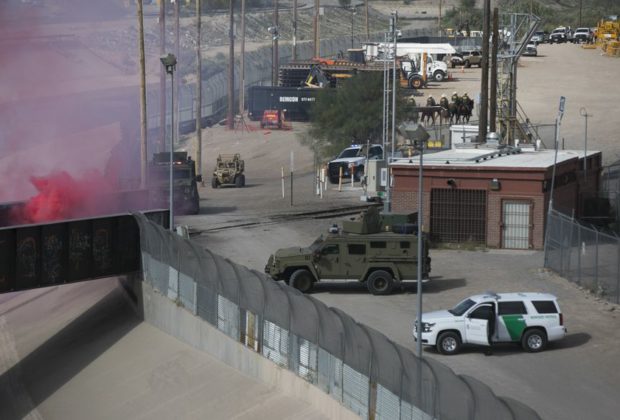The Trump administration has struck a deal with Mexico's incoming government to remake border policy.
BY JOSHUA PARTLOW AND NICK MIROFF, THE WASHINGTON POST
MEXICO CITY — The Trump administration has won the support of Mexico’s incoming government for a plan to remake U.S. border policy by requiring asylum seekers to wait in Mexico while their claims move through U.S. courts, according to Mexican officials and senior members of President-elect Andrés Manuel López Obrador’s transition team.
The agreement would break with long-standing asylum rules and place a formidable barrier in the path of Central American migrants attempting to reach the United States and escape poverty and violence. By reaching the accord, the Trump administration has also overcome Mexico’s historic reticence to deepen cooperation with the United States on an issue widely seen here as America’s problem.
“President Trump has developed a strong relationship with the incoming Lopez Obrador Administration, and we look forward to working with them on a wide range of issues,” White House spokesman Hogan Gidley said in a statement.
According to outlines of the plan, known as Remain in Mexico, asylum applicants at the border will have to stay in Mexico while their cases are processed, potentially ending the system, which Trump decries as “catch and release,” that has generally allowed those seeking refuge to wait on safer U.S. soil.
“For now, we have agreed to this policy of Remain in Mexico,” said Olga Sánchez Cordero, Mexico’s incoming interior minister, the top domestic policy official for López Obrador, who takes office Dec. 1. In an interview with The Washington Post, she called it a “short-term solution.”
“The medium- and long-term solution is that people don’t migrate,” Sánchez Cordero said. “Mexico has open arms and everything, but imagine, one caravan after another after another, that would also be a problem for us.”
While no formal agreement has been signed, and U.S. officials caution that many details must still be discussed, the incoming Mexican government is amenable to the concept of turning their country in to a waiting room for America’s asylum system.
While they remain anxious that the deal could fall apart, U.S. officials view this as a potential breakthrough that could deter migration and the formation of additional caravans that originate in Central America and cross through Mexico to reach the United States. They have quietly engaged in sensitive talks with senior Mexican officials, attempting to offer a diplomatic counterbalance to President Trump’s threats and ultimatums.
Alarmed by Trump’s deployment of U.S. military forces to California, Arizona and Texas, and his threats to close busy border crossings, Mexican officials were further determined to take action after migrants traveling as part of a caravan forced their way onto Mexican soil last month, pushing past police blockades at the border with Guatemala.
The prospect of keeping thousands of Central American asylum seekers for months or years in drug cartel-dominated Mexican border states — some of the most violent in the country — has troubled human-rights activists and others who worry that such a plan could put migrants at risk and undermine their lawful right to apply for asylum.
“We have not seen a specific proposal, but any policy that would leave individuals stranded in Mexico would inevitably put people in danger,” said Lee Gelernt, an ACLU attorney whose team has won several legal victories against the Trump administration’s immigration initiatives in recent months.
The Administration ought to concentrate on providing a fair and lawful asylum process in the U.S. rather than inventing more and more ways to try to short-circuit it,” Gelernt said.
The measures could also trigger legal challenges, though Gelernt said it was too early to comment on potential litigation.
The deal took shape last week in Houston during a meeting between Marcelo Ebrard, Mexico’s incoming foreign minister, and top U.S. officials such as Secretary of State Mike Pompeo and Homeland Security Secretary Kirstjen Nielsen, according to U.S. and Mexican officials.
Nielsen has been fighting to keep her job since the midterms, and while Trump has told aides he plans to replace her, the president praised her this week for “trying.”
Originally appeared in The Texas Tribune | Image Credit: Ivan Pierre Aguirre for The Texas Tribune



 (909) 335-8100 ·
(909) 335-8100 ·  (909) 335-6777
(909) 335-6777 Email:
Email: